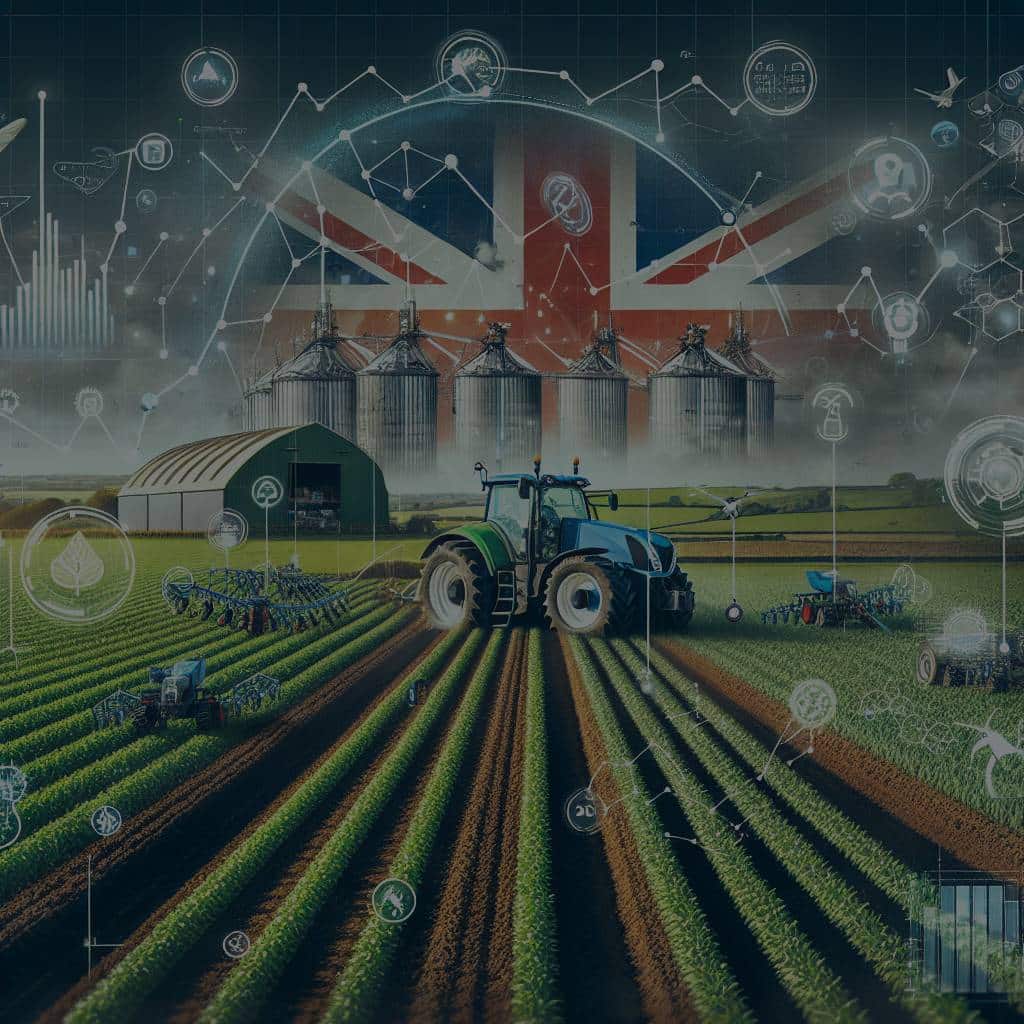How Can Precision Agriculture Boost UK Farm Yield and Sustainability?

In the vast expanse of the UK farming industry, you would find a burgeoning revolution. This uprising is not one of tractors and tillage but rather, a digital transformation that aims to revolutionise the realm of agriculture. The name of this progressive move? Precision Agriculture. It is a data-driven, technology-based approach to farming that increases efficiency, productivity, and sustainability. This article will delve into how precision agriculture can boost farm yield and sustainability in the UK.
The Foundations of Precision Agriculture
The concept of precision agriculture, or precision farming, is not a new phenomenon. The idea came into being in the mid-1990s, and it has gradually gained traction over time. Precision agriculture uses data gathered from various sources, including satellite imagery, soil sensors, weather stations, and even drones to monitor and manage crops and fields more efficiently and effectively.
Also to discover : What Are the Steps to Secure a Patent for a Software Invention in the UK?
Precision agriculture operates on the fundamental principle of observing, measuring, and responding to inter and intra-field variability in crops. The goal is to customise a host of farming practices, including water management, fertiliser application, and pest and disease control, to suit the specific needs of each crop, each field, and each farmer.
However, with the introduction of emerging technologies like data analytics, machine learning, and artificial intelligence, precision agriculture has come a long way from its humble beginnings. These advancements have not only made precision farming more accessible but have also significantly enhanced its potential to boost yield and sustainability.
Also read : How Can UK Small Businesses Optimize Local Delivery Operations?
The Role of Data in Precision Agriculture
Arguably, the single most crucial element in precision agriculture is data. Data is the foundation upon which precision farming systems are built. It is the lifeblood that flows through the veins of every precision farming operation, driving decisions, dictating actions, and determining outcomes.
Data in precision agriculture comes from an array of sources. Soil sensors provide data about soil conditions, including moisture and nutrient levels. Weather stations offer data on climate factors such as temperature, rainfall, and wind speed. Satellites and drones capture aerial imagery that provides invaluable data on crop health, growth patterns, and potential pest or disease outbreaks.
By collecting and analysing this data, farmers can make informed decisions about their farming practices. For example, they can pinpoint exactly where, when, and how much fertiliser or water a particular crop needs. This precise application not only maximises yield but also minimises waste, making farming more sustainable.
Precision Agriculture and Crop Management
Management of crops is an essential aspect of farming. In traditional farming, this task is often carried out based on experience and intuition. However, precision agriculture introduces a more scientific, data-based approach to crop management.
Precision agriculture technologies enable farmers to monitor their crops in real-time. Through advanced data analysis, farmers can identify issues such as disease or pest infestations early on, allowing for timely intervention. This proactive approach can significantly increase crop yield by minimising crop loss.
Furthermore, precision farming helps in planning crop rotations more effectively. By analysing data about past crop performances, soil conditions, and weather patterns, farmers can decide what crops to plant where and when to maximise yield. Such strategic planning also enhances soil health and biodiversity, contributing to the sustainability of the farm.
The Impact of Precision Agriculture on Farm Sustainability
Sustainability is a critical concern in modern agriculture. With the global population projected to reach 9.7 billion by 2050, the demand for food is expected to increase significantly. Therefore, it’s essential to find ways to make agriculture more sustainable.
Precision agriculture plays a pivotal role in this endeavour. By enabling farmers to use resources more efficiently, precision farming reduces waste and minimises the environmental impact of farming. For instance, using precise amounts of fertiliser not only saves costs but also prevents nutrient runoff into water bodies, which can cause harmful algal blooms.
Moreover, precision farming practices like variable rate technology (VRT) enable farmers to apply inputs such as seeds, fertilisers, and pesticides only where they are needed. This approach prevents overuse and misuse of these inputs, thus protecting the environment.
How Google Is Supporting Precision Agriculture
Google, one of the world’s leading tech companies, has also dipped its toes into the precision agriculture pool. Through its cutting-edge technologies, Google is helping farmers to make better, data-driven decisions.
Google’s Earth Engine, for instance, provides a wealth of satellite imagery data that can be used for monitoring crop health and detecting disease outbreaks. Google’s Cloud Platform offers robust data storage and processing capabilities, enabling farmers to analyse large volumes of data quickly and efficiently.
Google’s artificial intelligence and machine learning technologies can also be leveraged for predictive analytics. By analysing historical and real-time data, these technologies can forecast future conditions and events, such as weather patterns and disease outbreaks. This predictive capability can help farmers to plan and prepare better, thus optimising yield and enhancing farm sustainability.
In summary, precision agriculture, with its data-driven and technology-based approach, holds tremendous potential to boost farm yield and sustainability in the UK. By harnessing the power of data and technology, farmers can manage their crops more effectively, use resources more efficiently, and make farming more sustainable. While the journey of precision agriculture is still unfolding, it’s clear that this revolution is here to stay, promising a brighter and more sustainable future for the UK’s farming industry.
The Integration of Precision Agriculture Technologies
The adoption of precision agriculture relies heavily on the integration of various agriculture technologies. These technologies provide the data-driven insights that underpin precision farming practices. From remote sensing devices to real-time monitoring systems, these technologies are designed to provide precise, site-specific information that allows for optimised crop production.
Remote sensing technology, for instance, utilises satellite imagery or drone footage to provide a bird’s eye view of the entire farm. These images can reveal variations in crop health across different fields, enabling farmers to identify problem areas and intervene as necessary. Similarly, soil sensors can monitor soil moisture levels and nutrient content, providing valuable data that can guide the application of irrigation and fertilisers.
Variable rate technology (VRT) is another revolutionary feature of precision agriculture. VRT allows for the rate of application of inputs such as seeds, fertilisers, and pesticides to be varied across different parts of a field. This technology ensures that each part of the field receives the precise amount of inputs it needs to thrive. This not only boosts crop yield but also minimises waste and reduces the environmental impact of farming practices.
Furthermore, precision agriculture technologies also include advanced decision support systems. These systems utilise a wealth of data, including historical records, current observations, and predictive models, to guide farmers’ decisions. Whether deciding when to plant, what crop to plant, or how to manage pests, these decision support systems can provide invaluable assistance.
Taken together, these technologies are key enablers of precision agriculture, facilitating the implementation of efficient, sustainable, and data-driven farming practices.
Precision Agriculture: A Viable Option for the Future?
As the need for sustainable farming practices grows, the potential of precision agriculture is becoming increasingly apparent. With its technologically advanced, data-driven approach, precision farming has the potential to significantly boost crop yield and improve farm sustainability.
However, the implementation of precision agriculture does not come without its challenges. The initial investment in technology can be significant, and farmers may require training to effectively utilise these technologies. Moreover, the management of large amounts of data can be complex and time-consuming.
Despite these challenges, the benefits of precision agriculture are evident. By enabling farmers to make more informed decisions and manage their resources more efficiently, precision agriculture can significantly boost farm productivity. Furthermore, by minimising waste and reducing the environmental impact of farming, precision agriculture contributes to the sustainability of the agriculture sector.
Recent conferences on precision agriculture have highlighted the positive impact of this farming approach. Studies presented at these international conferences have demonstrated the potential of precision agriculture to enhance crop production and farm sustainability. Further, the role of tech giants like Google in supporting precision agriculture points to the growing recognition of its potential.
In conclusion, while the journey of precision agriculture is still in progress, it’s evident that this revolution is here to stay. The challenge for the UK’s farming industry is to embrace this change and harness the potential of precision agriculture to secure a sustainable future.
